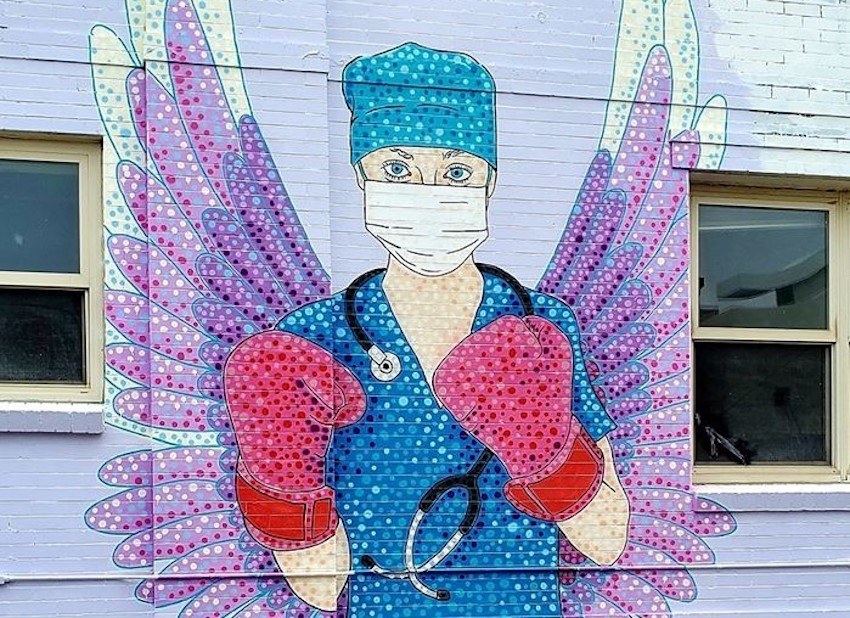Counterpunch, February 4, 2021
Part 4 of a 4-part Primer on Disaster Collectivism in the Climate and Pandemic Crises
At The Evergreen State College, in Olympia, Washington, our winter-quarter class on “Catastrophe: Community Resilience in the Face of Disaster” began in early January 2020, so our students had early warning of coronavirus as it began to spread around the world, but before the disease or public awareness had reached the United States. COVID-19 had reached Washington state by February, as our class held a Catastroph-Fair, and workshopped disaster scenarios such as a pandemic. After the shutdown began in mid-March, our faculty decided to introduce a new “Pandemic Academy” class, with the “Resilience Doctrine” as my inaugural lecture.
As I noted at the onset of the quarantine, “We’ve learned from previous disasters that fear makes citizens more obedient to authority. Fear reinforces the superstate as our protector, and justifies oppressive or unequal responses …‘Elite panic’ generates repressive measures that start to bring out the police, vigilantes, and military, ironically in the name of preventing public panic.” President Trump acknowledged as such one week later when he told reporter Bob Woodward, “I always wanted to play it down. I still like playing it down, because I don’t want to create a panic.”
Trump and similar European leaders used the so-called “foreign virus” as a xenophobic rationalization for “stronger borders” against immigrants, even though Syrians and Hondurans medically had much more to fear from contact with European and U.S. citizens than the other way around. The American mentality of “contagion” has been historically fraught with racial, cultural, and political exclusion, rooted in “Red Scares” and “Yellow Perils.” Anti-Asian sentiment and pogroms have historically been fraught with fears of disease. Latinx and Indigenous immigrant farmworkers and meatpackers bore the brunt of the pandemic, and launched numerous strikes for better health protections around the country. Homeless communities were also vulnerable to the virus, as urban leaders realized too late that unaffordable housing could exacerbate a public health crisis.


